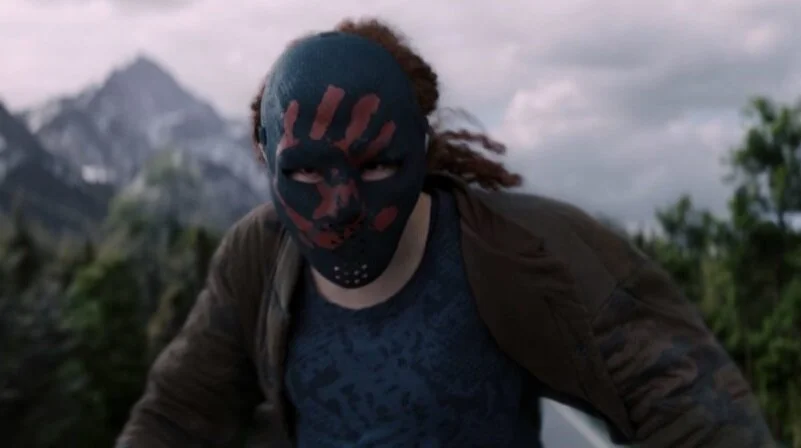The Falcon, the Winter Soldier and Open Borders
The Falcon and the Winter Soldier is Disney’s second MCU offering for the small screen, and like WandaVision before it, the show turns the spotlight onto two lesser-seen Avengers—Bucky Barnes, played by Sebastian Stan and Sam Wilson, played by Anthony Mackie. Mild spoilers follow.
The first episode mostly shows the two characters grappling with the struggles of life post-Avengers: Endgame. Sam and Bucky go through a lot of what military veterans go through when they reenter civilian life: grief for their fallen comrades, financial difficulties that come from a lack of government support, estrangement from family members, and PTSD and other mental health issues. The two of them are not completely out of combat though; The Falcon is still some sort of freelance military operative, and Bucky for his part joins in on the action in episode two.
Sam should’ve kept the shield.
TFATWS is still at its core a superhero show, so the character-driven stories get as much attention as the action scenes, and there are new bad guys to beat up. The pilot introduces the Flag Smashers, a terror group that aims to have “a world that’s unified without borders.” There’s also the introduction of John Walker, the “new” Captain America, who may or may not be as good as the prior one (he’s not).
The positioning of the Flag Smashers as the ostensible villain is of particular interest to me as an immigration lawyer. In the show, the group is composed of masked anarchists whose exact plans are yet unclear, but seem to be nefarious. Yet the concept of an open-borders world is not so nefarious, and there are compelling arguments that show how it can lead to reduced global poverty. Of course, there are counterarguments, which to my mind are mostly about administrability and xenophobia.
It’s a bold move for TFATWS to wade into such a thorny debate, especially given the state of US immigration policy and growing anti-immigrant sentiment all over the world. And it bears pointing out that the show also seems to want to make a statement about military interventionism and racism in the United States, all weighty and interrelated issues. It’s admirable, and I’m always quick to commend media that weighs in on current events, though I wonder whether TFATWS has the range to tackle open borders with the necessary nuance.
The Flag Smashers’ leader Karli Morgenthau (played by Erin Kellyman)
Because it is a superhero show, I don’t anticipate that Sam and Bucky will take a stance on immigration policy; it is more likely that most of the story will focus on the Flag Smasher’s methods rather than their cause. And I think that would be a problem—it feels wrong when immigration or racism are used as plot points with nothing more than a surface mention. In episode two, for example, there is a police encounter involving Sam and Bucky that is unsubtle and hollow because the show quickly moves on from it.
It’s also a problem when a show or movie presents an issue in its most extreme form. Thanos in the Avengers movies is essentially an eco-terrorist and yet the movies hardly explore about how resources are allocated in the universe. Most everyone can agree that anarchic terrorism is wrong, but what about the trickier question of what to do about our borders? The Robin-Hoodness of the MCU villains makes them more interesting for sure, but it doesn’t expand the viewer’s understanding of the issues, and worse, can give a viewer misimpressions about certain groups or ideals.
Do I want my superhero media to tackle current events head-on? Yes, always. Do I think the MCU will have characters that possess a specific point of view about these issues? I hope so, though I doubt it.
All photos © Marvel Studios 2021. All Rights Reserved.
